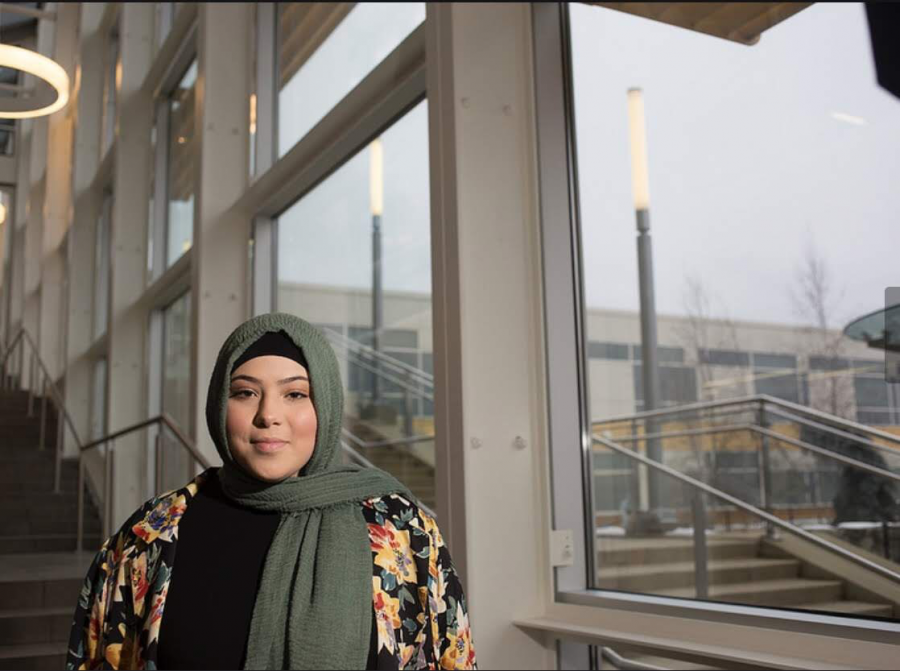Being Muslim in Trump’s America
May 15, 2019
Living in an era where the president of the United States has supported and campaigned upon ideas of hate and division, especially surrounding the Muslim community, has vastly changed the way civilians perceive Muslims.
Amira Abuarqoub a Muslim student at the College of DuPage noted that since the beginning of the Trump administration, she has dealt with microaggressions in everyday life.
“I work at Starbucks. Sometimes I’ll get people that say God bless you, or Jesus loves you, just the smallest comments that don’t need to be said but wouldn’t have been said if I wasn’t wearing this [hijab],” said Abuarqoub.
When asked about the threats towards Muslim congresswoman Ilhan Omar, COD counselor Amal Jarad, who is also Muslim, noted the difference in which Omar is treated when compared to other congressmen and women.
“For someone like a senator to be threatened like that…” Jarad shook her head. “This would never happen for someone who is Caucasian or from a different background.”
When asked about her thoughts on Donald Trump’s perception of the Muslim community, Jarad only asked, “How are you making America great when you demonize people and pit one group against another?”
Alternately, Abuarqoub also recognized Omar’s bravery to continue to be the visible representative of the Muslim community in Congress.
“I have so many friends who are majoring in all these political science, public policy, in things that are political because we want to see the change,” said Abuarqoub. “How do we do that? We go in power and implement change.”
After devastating attacks targeting Muslims, such as the acts of terrorism at the Christchurch mosque in New Zealand, both Abuarqoub and Jarad recognized fear and tension within the community.
“Whenever there is something that happens, especially if that thing is negative, [Muslim] students are worried about their safety. Is it a safe day to come? How do we know that this will not happen to us?” asked Jarad. “Even if it’s far away, like what happened in New Zealand, I know there are some students that stayed away because they were afraid.”
Since the start of the Trump administration, Abuarqoub recognized the need to be strong in her own self-image.
“I have to be more confident in who I am. I definitely have to look out more and just hold myself to a higher standard. I have to look out and say, ‘How do I represent myself just without even somebody talking to me?’ It sucks that I have to do that, but it has to be done in order for me to defend my religion and to defend who I am.”
Yet, despite the creeping fear and constant frustration, Abuarqoub is stronger in her faith than ever.
“I’m not going to let a white guy tell me who I am,” she said. “This makes me want to go out and learn more about my heritage, my religion [and] my background so that when I’m faced with a situation where I need to defend myself, that I know who I am; when I hear comments, that I’m firm in who I believe that I am and confident in myself.”
Finally, Jarad notices the solidarity of people with the Muslim community, especially since the mistreatment of Muslims has been going viral.
“This kind of behavior from the president brought out the other side—the people who used to be bystanders were pushed to take a stand,” said Jarad. “Today you will find people who will step in and say, ‘you have no right to say that.’”
While COD students wrap up finals, the Muslim community is halfway through Ramadan, a 30-day period of fasting, prayer and reflection.




















